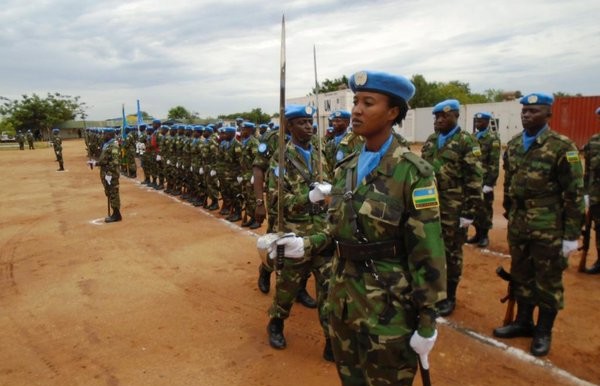The East African Regional block IGAD has agreed at a summit on Friday that a regional force should enter South Sudan to secure the capital. This decision comes after fighting erupted in Juba on 8 July leaving South Sudan’s peace deal on the brink of collapse.
The IGAD meeting sets the direction for the regional force, but many issues still need to be decided. Specifically, the East African countries have not yet negotiated with the South Sudanese government the “composition, mandate, armament, deployment, timing and funding” of the force.
In the meantime, the United Nations Security Council is expected to vote on 12 August to change the mandate of the UN Mission in South Sudan (UNMISS) to accomodate the regional force, and to consider changes to the mission’s mandate. They may also vote on whether to place an arms embargo on South Sudan.
Many of the details about the regional protection force are unclear after the IGAD meeting, and need to be decided before the Security Council votes.
What is the role of the regional force?
IGAD says that the South Sudanese government has accepted a “Regional Protection Force” to enter the country. This represents a concession by the South Sudanese government, which had hitherto rejected the proposal to deploy regional troops and particularly objected to naming the deployment an “intervention force”.
The IGAD communique now says that the government agreed that the Regional Protection Force would be for “the protection of the IDPs, humanitarian agencies and JMEC,” but it does not mandate it to protect Riek Machar if he remains.
What will be the mandate of peacekeepers?
The IGAD communique called on the Security Council to extend the UNMISS mission with a revised mandate. Some countries have called for the peacekeepers and the Regional Protection Force to have a stronger mandate, giving them a greater ability to protect civilians.
But others point out that peacekeepers in South Sudan are already mandated to use force to protect civilians. The only missions that appear to have a greater mandate to use force is the African Union Mission in Somalia, and the UN force in the Democratic Republic of the Congo. Both are offensive missions to neutralize Al-Shabaab and M-23.
This means that the mandate itself is not really the main issue for the peacekeeping mission, but rather the effectiveness and willingness of troops to carry out the mandate.
How large will the force be?
Because the government has to agree to the number of regional troops entering the country, there is a possibility the Regional Protection force will be small and not well equipped.
It is also unclear which countries will be contributing. Ethiopia and Rwanda are already two of the largest troop contributors in South Sudan. Kenya and Uganda already have committed troops to the African Union Mission in Somalia.
This points to the likelihood that a Regional Protection Force could draw on many of the same troop contributing nations as already have troops in UNMISS.
Will there be an arms embargo?
It appears that the key vote could be Egypt. At the Security Council, Russia and China are not expected to veto an arms embargo if African countries on the body agree. Angola and Senegal are already in favor of the motion, and the United States, who has historically been opposed to actually implementing the embargo on South Sudan, appears to have turned the corner.
How does this affect Riek Machar’s position?
SPLM-IO Chairman Riek Machar has said that he will not return to Juba unless a Regional Peacekeeping Force makes the city safe.
If a protection force does deploy to the capital, at what point will he consider the city safe? And will he want — or be able — to bring soldiers with him?
The prospects for his return to Juba any time soon remain quite uncertain even after the decision to deploy an IGAD force.
What is next for Taban Deng?
Taban Deng is the SPLM-IO politician who claims the leadership of the movement and whom Salva Kiir picked to replace Riek Machar. The IGAD communique points out that Taban Deng has said he is willing to step down if Riek Machar returns to Juba. But its unlikely that the SPLM-IO leadership will welcome Taban and others back after their recent leadership coup in Juba, for which they termed Taban and his supporters traitors. This points to the likelihood of an enduring split in the SPLM-IO and continuation of his term as the new first vice president.




